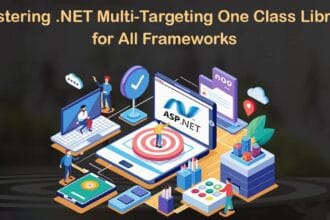
If you’re a PHP developer and have been tasked with setting up your own web server, it’s likely that you have a few questions. What type of web server do I need? Which one is the best? How should I configure it? This article will help you determine which web server is suitable for your needs and help get started with your new project.
What is a Web Server?
Web servers provide users with files that form Web pages using HTTP (Hypertext Transfer Protocol). Web servers connect to the Internet and exchange physical data with other devices connected to the Internet.
Best Web Servers for PHP
- LiteSpeed
- Apache HTTP Server
- Nginx
- Lighttpd
- Cherokee
- IIS (Internet Information Services)
LiteSpeed

LiteSpeed is a fast and reliable web server that’s compatible with PHP, MySQL, and Perl. It’s easy to install and configure, so you can get started right away.
LiteSpeed has a free version that allows you to host up to 10 websites on one server or virtual host (VHOST). The paid version lets you host unlimited websites on one virtual host or multiple VHOSTs if your needs are more advanced than the free version would allow for.
Apache HTTP Server

It’s open source and written in C, which means you can customize it to work with your needs. The default installation has modules like SSL encryption, PHP support, MySQL support, and more.
Apache also has a modular architecture that allows you to use different parts of its codebase for different purposes if needed. For example: If you want to run an application on top of Apache but don’t need some features like PHP or MySQL support (or even CGI), then this may be what you need!
Nginx

Nginx is a speedy and lightweight web server. It’s also highly scalable and can handle static content, dynamic content, load balancing, proxying, and reverse proxying.
Nginx also has SSL termination capabilities (both client-side and server-side) for your site’s visitors to complete their transactions securely through HTTPS encryption. This means that even if someone were to intercept traffic from your website with an attacker on the same network as you or within range of your IP address they would not see any data because it has been encrypted by the SSL certificate issued by a trusted third party called Let’s Encrypt which issues certificates based on public key cryptography instead of traditional passwords like those used by other services like Google DNS servers or Cloudflare CDN providers who use hashing algorithms instead of plain text passwords as well as key management keys (KMKS) which are used during authentication when users log into these services via web browsers rather than directly typing in their credentials into text fields where they could be easily intercepted by hackers.”
Lighttpd
Lighttpd is a secure, fast, and standards-compliant web server written in C. It’s small (about the same size as Apache) and has a very small memory footprint.
Lighttpd is optimized for serving static files such as images or CSS from disk instead of from memory; this makes it faster than Apache when serving these kinds of files.
Cherokee

Cherokee is a free and open-source HTTP server that’s written in C. It’s easy to install and configure, fast and lightweight, and supports HTTP/1.1 and HTTP/2 (the latest version of the protocol), as well as other features like Zlib compression support.
The main advantage of using Cherokee over other servers is its simplicity: it doesn’t require much configuration besides running on your computer’s RAM or hard drive space (which should be big enough for most projects).
IIS (Internet Information Services)

IIS (Internet Information Services) is a web server that comes with Windows. It’s not a web development framework, but it does include many useful features for building websites.
It comes with the operating system and is included in all editions of Windows (including Windows Server). This makes it a popular choice for PHP developers who want to use their favorite language on every platform they need it on.
The most notable feature of IIS is its wide range of features, which includes support for PHP and MySQL databases as well as other open-source technologies like Perl, Python, and Ruby scripts; FTP servers; SMTP email sending; URL mapping rulesets; SSL certificates generation & management tools such as Let’s Encrypt for HTTPS encryption & securing websites against man-in-the-middle attacks using Cloudflare CDN/ Akamai EdgeCaching
- It’s not open source or free: You’ll have to pay for IIS if you want to use it on your computer; otherwise, you can get it from Microsoft’s website.
- It doesn’t really compete with Apache: IIS is an alternative—and sometimes better—strategy when choosing which software is best suited for your needs because they complement each other well and offer different features than either Apache or Nginx do alone.
Read more: How to Set-up WordPress on Amazon EC2
Every web server has its pros and cons.
- LiteSpeed: LiteSpeed is a lightweight, fast and secure HTTP server that can be used to host static websites as well as dynamic ones. It’s easy to install on Windows, Linux, or macOS systems without having to install any additional software. The developers of this project claim that it has been designed with simplicity in mind so that you don’t have to worry about any technical issues while using their product – everything will just work!
- If you’re using ASP.NET MVC 4 or 5 (or another framework), then IIS will probably be the best choice for your new project because these frameworks are built around
- Apache HTTP Server: This open-source platform was originally developed by Jamie Zawinski (the same guy who created PHP) back in 1995; since then it’s become one of the most popular web servers around today due to its reliability and high-performance levels which makes it perfect for powering large websites or applications such as YouTube (which uses Apache every day).
- Nginx is a great choice for those who want the benefits of PHP but don’t need the overhead. It’s fast, scalable, and flexible. The main advantages of using Nginx are:
- Performance – Nginx has been proven to be faster than Apache in many cases.
- Scalability – You can easily scale your server up or down depending on your needs without changing any config settings.
- Security – Nginx has excellent security features such as HTTPS support and private IPs (for remote access).
- IIS is a popular option for web developers. This web server can be used on Windows and Linux, and it provides a full-featured environment for developing your website or application. In addition to having many features that make development easier, IIS also has a steep learning curve: It’s not something you should try to learn overnight if you aren’t already familiar with the technology.
- If you’re using ASP.NET MVC 4 or 5 (or another framework), then IIS will probably be the best choice for your new project because these frameworks are built around
Conclusion
I hope this article was helpful to you, and that it helped you decide on the best web server for your PHP project. As you can see, there are lots of options for web servers. Once you decide on a framework and server, it’s a good idea to create an installation guide for your developers so they know exactly how to set up their environment. This will save time and headaches down the line!
Author Bio:
Maria Khan Tech Enthusiast & a Product Manager at CyberPanel.
Facebook: https://www.facebook.com/profile.php?id=100083969643008








